The War on Modern Man's Masculinity
The destruction of masculinity has destroyed men. How radical "moderates" are waging war against masculinity and emasculating modern men.
Introduction
Dopamine addiction is a modern problem that is plaguing society. A side effect of constantly trying to chase new highs has resulted in the death of critical thinking. Hence, when most people read a piece of work, they don’t really take the time to appreciate the deeper meanings that the author may have alluded to. Their attachment to the work is predicated on how much dopamine their hypothalamus can release.
This has created this toxic trend whereby “NPCs” always take a piece of work at face value or avoid reading it completely because it can’t create happy juices. Hence, most modern media is just drivel created to satisfy the modern NPC looking for their next dopamine bump.
This article extends upon the third tenant of Vagabond’s philosophy, “The Way.”
Rule three: Limiting consumption of modern media.
Before reading this article, we highly recommend you read our previous article. We will again use the book and movie “Fight Club” to demonstrate how the author, Chuck Palahniuk, created a perfect allegory for the plight of the modern man.
What is Masculinity, Actually?
When looking online, the word “masculinity” for some reason has become some forbidden phrase one cannot utter anymore. We will keep the definition simple, as it has already been convoluted and changed enough by liberal media to the point where even men are having difficulty understanding what it actually means.
“A man does what he must - in spite of personal consequences, in spite of obstacles and dangers and pressures - and that is the basis of all human morality.”
–Winston Churchill
This quote from Winston Churchill really summarises what it means to be masculine. Being masculine means doing what has to be done as a man to ensure the survival of one’s family and community, whether this means going to war to fight an oppressive enemy, working a job one despises to feed one’s family, staying strong in the midst of adversity, or sacrificing one’s own comfort to protect the whole.
Throughout all time, men have been established as protectors, builders, and providers. And by extension, this means being physically and mentally strong, being incorruptible but also kind. Personal sacrifice is the essence of what it means to be a man.
This word “masculinity,” however, has been corrupted. It no longer means strength. Now it means watching the world crumble without speaking out. Men have been castrated, literally both socially and physically, and the social ruling class deems being “masculine” as accepting all forms of debauchery and degeneracy while also supporting it. They have gone so far as to define masculinity as “toxic.”
Toxic masculinity is what can come of teaching boys that they can’t express emotion openly; that they have to be “tough all the time”; that anything other than that makes them “feminine” or weak.
– The New York Times
Ironically, that definition was written by a woman. Basically, if a man keeps to himself, doesn’t spend all day and night complaining about his problems on social media, and openly acts masculine by projecting a strong frame, society will slap the label of “toxic:” on him. Masculinity used to mean strength in the face of adversity. Now, it has been degraded and bastardized to mean weakness.
Modern masculinity, as defined by the ruling militant feminist social class, is literally just another word for weakness.
The Narrator’s Inner Conflict
What drove us to write this article was one of the experiences an author had with a reader. When discussing the book “Fight Club” with them, the reader hadn’t actually read it but instead decided to Google some reviews to see if it was worth the $9.99 price tag. They were bombarded with articles about how the book pushes “toxic masculinity” and how the book encourages men to be toxic and leads them down a path of violence.
Literally, Google “Fight Club Article” almost every article on the front page of search results is some form of hit piece attacking the men that enjoyed the over-arching premise of the book. This is fundamentally why one of the pillars of the way involves avoiding most modern media - it is toxic, lacks any depth or critical thinking, and only exists to push an agenda.
The first few links…
So what was the book/movie actually about?
(Note, stop reading here if you want to read the book/watch the movie, as it will be spoiled)
Fight Club represents the inner struggle of a man trying to find his masculinity again after losing it, chasing what society deemed to be a “good life,” one filled with monotony and materialism. An interesting point as to why in both the book and movie, the main character, i.e., “The Narrator,” is never given a name is because he was created to serve as a generic template or example of the average modern man who is going through the same struggles and hardships. It makes the character much more relatable to the target audience of the book and movie.
The Narrator has this internal struggle because one aspect of being truly masculine is being free. When a man is content with his life and strives to better himself and his community daily, he can achieve self-actualization and, thus, freedom. Freedom from the shackles of materialism, corruption, and modern degeneracy.
Let us look at how the book was an allegory for the modern masculinity problem.
There are three important characters who all represent an aspect of this conversation.
Big Bob, a man who lost his testicles due to testicular cancer, tries to cling to his masculinity through group therapy sessions.
Marla, the Narrator’s love interest, represents materialism, weakness, and emasculation.
Tyler Durden, the Narrator's alter ego, represents masculinity, violence, freedom, and confidence.
Now, the twist is that instead of the Narrator having a single delusion, Tyler, he also has two more, Big Bob and Marla, who represent other aspects of the Narrator’s persona.
If you want to understand the theory completely, feel free to watch the video attached below. This article will discuss the deeper meaning and how it is an allegory for modern masculinity.
Essentially, the Narrator had to make a choice in the end. Side with Tyler and become truly masculine, hence freeing him from the problems that created his severe insomnia, or side with Marla and go back to the old boring, emasculated life he had, filled with depression and sleeplessness. Big Bob represented the state in between both masculinity and emasculation. He had become emasculated due to losing his testicles. However, still tried to cling to masculinity.
At the end of the book, the Narrator shoots himself in the neck, which ultimately “kills” Tyler, with the same happening in the movie. The only difference is in the book, the bombs don’t go off. However, in the movie, they do. Regardless of this, in both the book and movie, Marla and the Narrator embrace by Marla confessing her love for the Narrator, and both of them hold hands.
This scene in both the book and movie is incredibly symbolic. When the Narrator “kills” Tyler, it symbolizes him literally murdering his masculinity. To take it a step further, he embraces his other delusion Marla, which further symbolizes the idea that the Narrator has forsaken his masculinity and embraced emasculation.
Hence, the movie and book Fight Club are really a story about a deeply conflicted man trying to connect with his masculine self. Ultimately the Narrator abandons this goal and chooses Marla, who represents modern society, degeneracy, and materialism in the purest form. By the end of the film, the Narrator is back where he started.
The Modern Man
The book exactly predicted the conflict modern men face today. Every man is at constant war with their masculinity, a war perpetrated by modern media and liberalism. This is a direct result of three key factors:
The heavy reduction in testosterone production in men over time literally causing physical castration in modern men.
The constant social attack on masculinity from liberal media targetting men who display masculine traits publically.
The modern mental health crisis plaguing men as a result of shifting social and economic dynamics.
It’s no secret that the modern media hates masculine men. Just searching for “masculinity” on the world’s largest search engine Google, outputs a torrent of hate articles against men and masculinity, another reason why one should avoid modern media.
It’s almost comical, the front page is filled with articles about toxic masculinity and nothing with guides on how to teach men to be healthy and masculine.

Google even uses a picture of controversial figure Andrew Tate in the widget with the definition, even going as far as to use a photo taken from his arrest: (Ironic how of all the actual masculine pictures in the Wikipedia article they could have pulled from, they chose this one, almost like it was done for a reason).
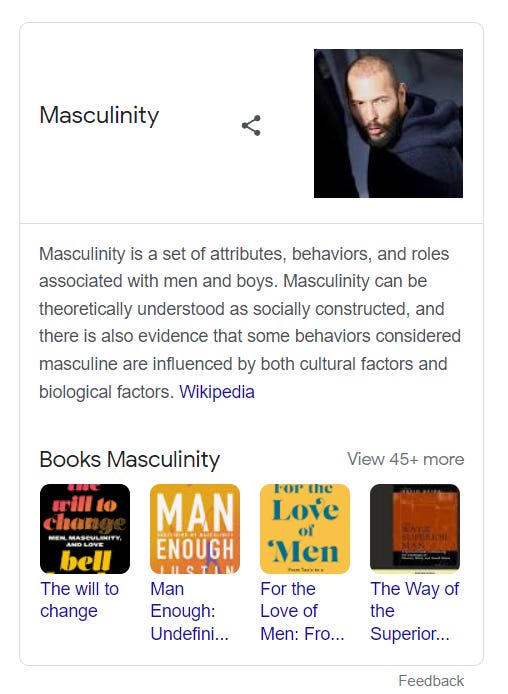
This was tested using VPNs in the US, Australia, and Japan. Try testing it yourself and tell us what output you got. (Note, this may be due to the article's high search ranking, but the point here is to demonstrate how modern media tries to attach negative connotations to the word masculinity.)
This doesn’t even include the barrage of mindless articles written specifically to attack masculinity and masculine men. Everything from attacking gym bros for being “toxic” all the way to making videos telling men, “it’s ok to be weak.” As stated at the beginning of the article, this is all mindless drivel written to appease a fanbase that has wholeheartedly accepted that masculinity is toxic, with these articles used to manipulate NPCs into confirming their own bias triggering that oh-so-sweet dopamine hit.
Points one and three are discussed in-depth in a previous article, we recommend reading that for a more in-depth analysis.
To summarize, male testosterone levels are at all-time lows. Various studies indicate a significant decline in testosterone levels in men over time. A notable study published in 2007 in the Journal of Clinical Endocrinology and Metabolism revealed a "considerable" decrease in testosterone levels in American men since the 1980s. The study reported an average annual decrease of 1%, resulting in a 17% disparity in testosterone levels between a 60-year-old man in 1987 and one in 2004. There are many more recent studies as well that support this phenomenon.
Men have basically fallen behind in every aspect of life. More women are now attending and graduating college versus men:
Furthermore, a study found that the suicide ratio between males and females worldwide is 1.8:1, with some regions having four times more male suicides than female suicides.
The answer now becomes clear when looking at all these pieces together. In Fight Club, the Narrator represents the modern man. A weak, depressed, socially anxious individual who is constantly bombarded with messages about how it’s wrong to want to feel and act masculine. The messaging even goes as far as claiming that it’s ok for men to be weak and that they shouldn’t try to do anything to become more masculine. Modern men are at war with themselves and are losing.
Hope
One plot line in Fight Club which is overlooked is how the character of Big Bob, who had lost his testicles, and hence his masculinity in the metaphorical sense, had found again what it truly means to be masculine by joining Fight Club. He found a group that encouraged self-improvement by training every day. He recognized strength in brotherhood and found a cause he thought was worthy of his time, ultimately dying for it.
Even though some may view the actions of these men and project mayhem as negative, it’s important to note that they actively tried to avoid hurting people and only chose to target the rich and corrupt, forcing them to make the world a better place. Fundamentally, the underlying beliefs of the group were good, but the way they spread this message and changed the world was extreme. Nonetheless, the men found a new sense of self and freedom as part of project mayhem and the fight club, which allowed them to express their masculinity since it had been repressed for so long.
“Be determined and advance. To say that dying without reaching one’s aim is to die a dog’s death is the frivolous way of sophisticates.”
– Yamamoto Tsunetomo, Hagakure
The above quote encompasses the difference between Big Bob and Tyler and the Narrator and Marla. The former chose to cling to their masculinity and goals despite the odds being stacked against them. The latter chose to give up and refused to move forward, with the Narrator needing the help of his manifestation Tyler to act and Marla attempting suicide in the movie, only to be saved by Tyler.
Masculinity represents strength, and strength is fundamentally about moving forward. Even if a man has been emasculated, he only needs to develop the determination to become masculine to return on the path of becoming masculine.
The most important aspect of the movie, which we have not touched on yet, is the fight. It’s a fight instigated by Tyler, which is what attracts other men to join in. Violence's brutal and straight-to-the-point nature is the perfect avenue to reawaken latent masculinity.
So, if one feels like an emasculated man, hates their job, feels physically weak, and is depressed. What is step one to fixing this? It’s simple.
Start training.
It can be anything—weight lifting, professional wrestling, running, etc. The first step to increasing testosterone is moving your body. Focus on nothing else. Just getting stronger. This is a key point that the many critics of Fight club who lack critical thinking skills miss. When the men of fight club chose to start fighting, they had to train to win. And when they started training, they began to regain their masculinity.
Once the foundation of strength has been built, one can begin on the path of cultivating discipline. This is the gateway to becoming truly masculine.
The most important lesson of this article is never to give up hope. No matter how far down one has fallen in life, there is always a path to redemption. In future articles, the authors will discuss what one can do to continue on the path of becoming a truly masculine man.
And remember…
Authors Comments
This article is not meant to attack any particular group of people or set of beliefs or opinions. It is merely a data-driven analysis of how modern masculinity is under attack and what factors or groups are perpetuating it. If you find this article offensive, disagree, or agree with the opinions made by the authors, feel free to reach out to Charlemagne on Twitter with feedback, personal experiences, or counterpoints. It can be either positive or negative. The writers at Vagabond seek only to improve constantly. The article also intended to highlight how a timeless piece of media is a perfect allegory for reflecting the modern man’s plight.
If you want to walk a path of righteousness, we recommend learning “the way.”
Thank you for reading our work and supporting our message🗡️






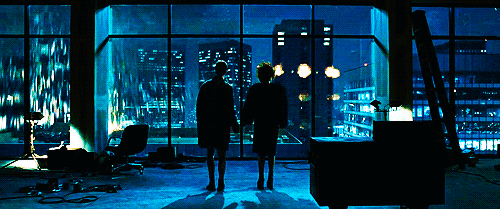
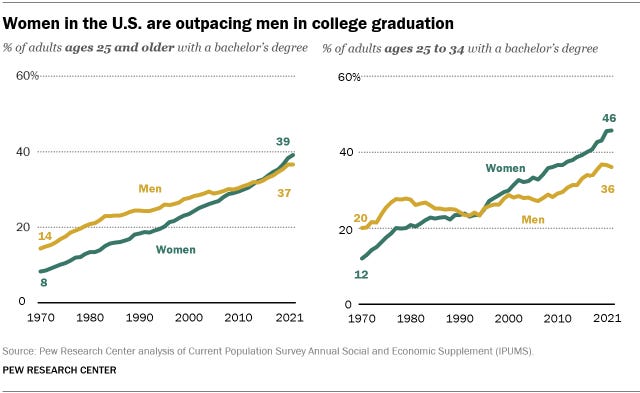
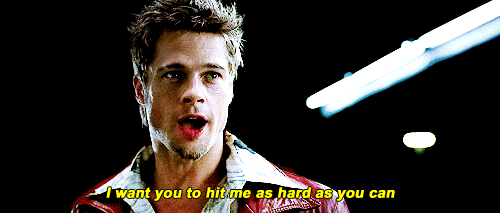
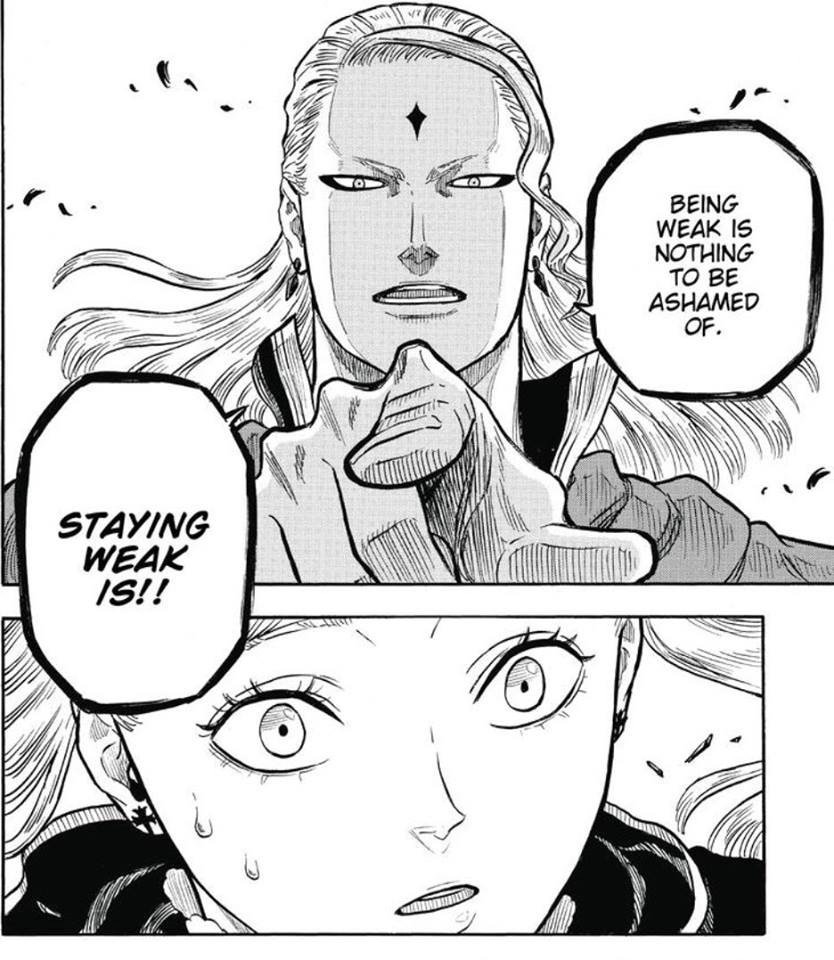
This was such a good read. For Christmas I asked my mum for a book (she was a librarian and always wanting us to read) - "The Way of the Superior Man". It is a beautiful book about how to find your purpose, improve your relationships and stay true to your masculinity. My mum, without reading more than the blurb, told me she was disgusted that she bought this and ashamed. It is strange thinking of your parents as so open-minded growing up, and learning their fallibilities only with age.
I definitely concur that as a society we have had issues with toxic masculinity and the world being too much of a patriarchy for too long. Groups of men can often behave badly, especially towards women. But the brandishing of masculinity as something shameful has to stop. Life is always a balance of the yin and yang, masculine and feminine. We all have and need both.
Physical training is so important to me. It is as much for my mental health as it is my physical. A failure to use our bodies as intended is a big part of our decline both as individuals and society
You, as a woman, do not get to define masculinity.
Refute media women telling men how or what to live as a steeled “Written by a woman lacking life experience as a man, her words are dismissed.”